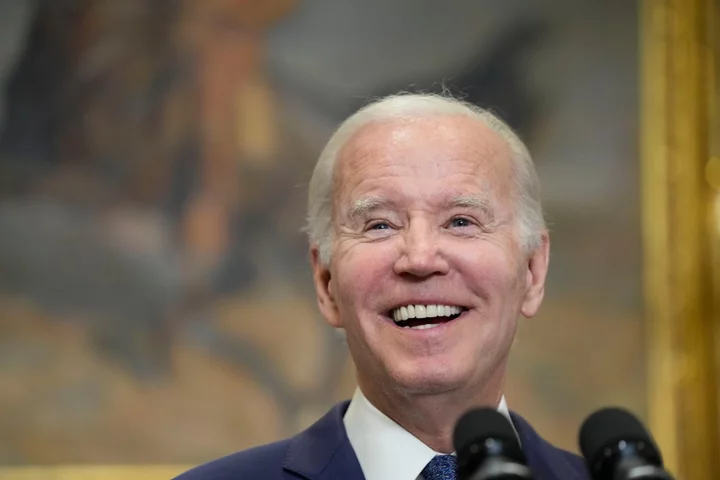
Takeaways on debt ceiling: McCarthy's balancing act, Biden's choice and the challenges ahead
It’s a deal no one in Washington claims to really like. But after weeks of negotiations, President Joe Biden and House Speaker Kevin McCarthy have struck an agreement to raise the debt ceiling and avert a potentially devastating government default. The stakes are high for both men — and now each will have to persuade lawmakers in their parties to vote for it. Treasury Secretary Janet Yellen said last week that the United States could run out of cash to pay the bills and default on its obligations if the debt ceiling is not raised by June 5. The ultimate agreement, hammered out by Biden, McCarthy and a small group of their deputies, is a two-year budget deal that would essentially hold spending flat for 2024, while boosting it for defense and veterans, and capping increases at 1% for 2025. It would suspend the debt limit until January 2025, after the next presidential election. Republicans had insisted on reducing spending and had passed their own bill with much larger cuts last month. The package would also make policy tweaks, including by adding work requirements for some food aid recipients and streamlining an environmental law that Republicans say has made it harder to build energy projects. Takeaways from the deal, and from the negotiations that led up to it: McCARTHY’S DELICATE BALANCING ACT Ever since McCarthy won the House speakership on the 15th ballot in January, it was clear that the debt ceiling negotiations would be his first and perhaps biggest test. Known more for strategy than policy, McCarthy has had a challenge that seemed almost insurmountable, with a narrow majority and a sizable group of hard-right conservatives certain to oppose anything he negotiated with Biden. And he could still find himself in the middle of a crisis if too many in his caucus revolt when the House votes on the package this week. Through it all, the Californian has exhibited his typical laid-back vibe, projecting confidence about the bill and its success. He said Sunday that he will win a majority of Republicans on the bill and some Democrats. In a conference call on Saturday night, McCarthy said, more than 95 percent of the members in his conference “were overwhelmingly excited about what they see.” But some House Republicans were publicly slamming the deal, arguing it did too little to cut the deficit. Rep. Dan Bishop of North Carolina tweeted a vomit emoji, complaining that some Republicans on the call were praising the speaker for getting what he said is “almost zippo in exchange” for the debt-ceiling hike. BIDEN’S RELUCTANT COMPROMISE For months, Biden and his aides had a mantra: There would be no negotiation on the debt limit. But then he negotiated anyway. It’s not where Biden, a veteran of the nasty 2011 debt-limit battle that saw the nation’s credit rating downgraded for the first time in history, wanted to be. But it was a likely scenario — with a Republican-controlled House that had made it clear from the start that it would not raise the borrowing authority under a Democratic president without extracting spending curbs or other policy concessions. There was no way Biden, who is running for re-election next year, would want a historic default on his watch. Biden has continued to insist that he was negotiating on the budget, not the debt ceiling. But pushed by a reporter Sunday evening who noted that was precisely what Republicans were seeking in exchange for lifting the debt limit, the president seemed to break from his talking point. “Sure, yeah,” Biden said, chuckling slightly. “Can you think of an alternative?” Now he will have to sell it to House Democrats, who must vote for it in big enough numbers to make up for defecting Republicans. Many progressive members in the House have appeared skeptical of the deal, but they remained mostly quiet over the weekend as they waited for more details. But the deal won early praise from another key Democratic group. The New Democrat Coalition, which has roughly 100 members, praised Biden as having negotiated “a viable, bipartisan solution to end this crisis.” LONG-SOUGHT GOP POLICY Republicans were able to win some policy changes they have sought for years, however modest, including on food aid. The bill would raise the age limit for existing work requirements in the Supplemental Nutrition Assistance Program, also known as food stamps. It would also create a new agency to develop and streamline environmental reviews that Republicans have complained about for decades. The new work requirements for able-bodied SNAP recipients without dependents would phase in by 2025 and expire by 2030. And a provision pushed by Biden would take some vulnerable recipients — like veterans and the homeless — off work requirements entirely. But Republicans made clear that pushing more people to work in exchange for government benefits was a major victory for them, even if mostly symbolic. The bill also would amend the National Environmental Policy Act and designate “a single lead agency” to develop environmental reviews, in hopes of streamlining the process. Republicans had hoped for a much broader permitting package that would make it easier to build and develop energy projects. But Louisiana Rep. Garret Graves, a McCarthy ally who was one of the negotiators, said the bill brings “transformational changes into the permitting and environmental review process” for the first time in four decades. SENATE QUIET, WAITING TO CLOSE McCarthy has said the House will vote on the package Wednesday. If passed, it will then head to the Democratic-led Senate where leaders will have to get agreement from all 100 members to speed up the process and avert a default by next Monday. The White House briefed Democratic senators Sunday and McCarthy briefed Republicans. But most senators remained quiet on the deal as they waited for the full text and to see if McCarthy can navigate it through the House. Senate Majority Leader Chuck Schumer, D-N.Y., and Senate Republican Leader Mitch McConnell of Kentucky cut themselves out of the negotiating process early on, saying it should be a negotiation between the White House and McCarthy. McConnell issued a statement supporting the legislation on Sunday but some in his caucus have criticized it. The two leaders will have to navigate any potential objections over the coming week as they seek to win full support to move quickly on the deal. “With Republicans like these, who needs Democrats?” tweeted Utah Sen. Mike Lee on Saturday, aligning himself with the House Republicans who say the deal is not conservative enough. Read More Ukraine war’s heaviest fight rages in east - follow live Charity boss speaks out over ‘traumatic’ encounter with royal aide Trump's welcome of Scott into 2024 race shows his calculus: The more GOP rivals, the better for him Stock market today: Asian markets mostly higher after Biden-McCarthy deal on US debt What’s in the cliffhanger deal struck by Biden and McCarthy to raise the debt limit?
2023-05-29 12:47

What’s in the cliffhanger deal struck by Biden and McCarthy to raise the debt limit?
Weeks of sniping back-and-forth between the White House and the Republican majority in the House of Representatives has finally yielded a deal: America will not default on its debt obligations, should Congress act and pass the legislation before Thursday. On Saturday, House Speaker Kevin McCarthy and Joe Biden announced the end of negotiations and the agreement upon a deal late into the evening, with the text of the legislation itself soon to follow. The new compromise both touches on Republican priorities while also safeguarding Joe Biden’s legislative accomplishments. But it comes after weeks of bitter fighting. Republicans accused the White House and congressional Democrats of out-of-control spending, ignoring their rivals’s derisive reminders about the debt incurred by a GOP-led tax cut passed in 2017 that largely benefited wealthier Americans. Democrats, meanwhile, blamed Republicans for holding the country’s credit rating and ability to pay its loans hostage, and for seeking cuts to social welfare programs like food assistance for needy families. As we inch closer to Thursday’s deadline, let’s take a look at what leaders in Washington have come up with to break the deadlock. No more debt drama (for now) The first and most significant achievement of this deal: it raises the debt ceiling through the end of 2024. That guarantees the GOP won’t be able to wage a fight over the issue again, particularly as the presidential campaign season heats up later this year and into the next. Any debt ceiling battle during campaign season, particularly in the summer or fall of 2024, would take Joe Biden off the campaign trail and put his focus firmly on Washington at a time when either of his likely general election opponents, Donald Trump and Ron DeSantis, would be free to continue their politicking. In total, the deal calls for raising America’s debt limit by $4 trillion. Signing away that leverage for the next year is already proving to be one of the toughest pills for congressional conservatives in both the House and Senate to swallow, especially given the lack of other major concessions in the pending legislation. Spending caps The GOP’s big win in the negotiating process, this legislation is set to freeze federal spending at the current level, with the exception of military funding, through 2024. And growth of that spending will be capped at 1 per cent if Congress cannot agree upon a stopgap spending deal in January of 2025. This is a significant restriction for the federal government over the next year, and notably puts in place much stricter spending limits than members of Congress agreed to during the last debt limit fight in 2019. The language allowing for defence spending to increase while domestic programmes face a spending freeze is already irking progressives, who have long argued that the US military’s bloated budget should be at the top of the list for reforms. Caps set by this compromise are simultaneously the biggest victory for Republicans as well as their failure; while the spending caps are certainly more than what Democrats were demanding, they also eliminate the possibility of Republicans using the debt ceiling to make real cuts to programmes already implemented by the Biden administration as part of the Inflation Reduction Act and other legislation. That means that Mr Biden’s 2021-2022 legislative agenda will remain largely intact, despite demands by conservatives to roll back huge parts of it, like efforts to forgive student loans or expand green energy production. Work requirements for food stamps One of the GOP’s efforts to stem the tide of federal spending is centred around the issue of providing food assistance to low-income families. The new legislation is set to expand work requirements for the SNAP programme from the current age cap of 49 to a new cap of 54, meaning that Americans within that age bracket will have to prove employment to receive benefits. The issue may seem oddly specific for Republicans to hold up America’s ability to pay its debts upon, but tightening the restrictions fo federal assistance has long been a target of the GOP, and originally the party wanted to expand those work requirements to Medicaid as well. The new work requirements will sunset in 2030, unless extended before then by a GOP Congress. IRS funding halted The other specific ask that Republicans managed to secure in their compromise with the White House was a halt, at least in part, to a plan to fund new hiring initiatives at the Internal Revenue Service (IRS), America’s tax collection agency. The beleaguered agency was set to receive more funding for agents that the federal government said were to assist taxpayers with filing issues and shore up the IRS’s capabilities; Republicans painted the issue instead as an effort to hire an army of IRS auditors to go after taxpayers for suspected fraud, a non-starter for the party that has long sought, particularly among its conservative wing, to diminish the power and capabilities of both the IRS and other federal agencies. But some conservatives are already complaining that the cuts aren’t enough. Congressman Chip Roy exclaimed angrily after the deal was announced that “98%” of the funding for the expansion of the IRS’s services would still go through. Covid aid The deal has one more minor win for Republicans — a provision to return Covid aid funding that has yet to be appropriated. Millions of dollars in this aid still remains unspent by the federal government, though Democrats have used it thus far to fund a number of federal health programmes which they warn could face cuts if the aid is rolled back entirely. Read More Debt ceiling agreement gets thumbs up from biz groups, jeers from some on political right President attends 2nd grandchild's graduation as daughter of Biden's late son leaves high school Democrats look set to back debt limit deal – while right-wing threatens to blow it up AP News Digest 8:40 a.m. Debt-ceiling deal: What's in and what's out of the agreement to avert US default Asylum-seekers say joy over end of Title 42 turns to anguish induced by new US rules
2023-05-29 05:46
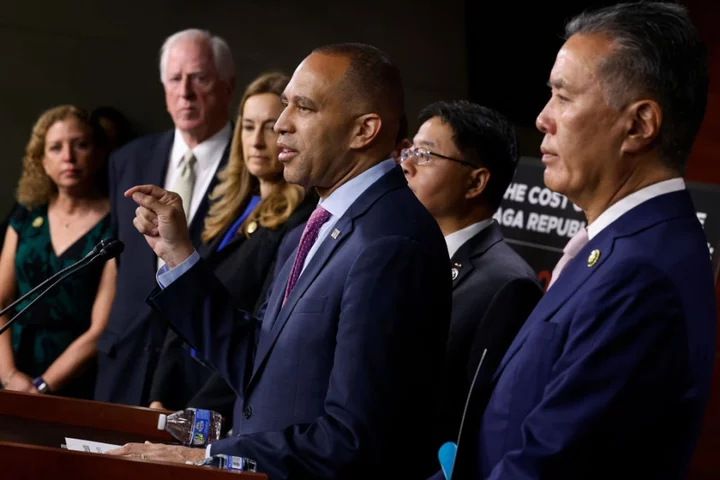
Democrats look set to back 11th hour debt ceiling deal – while GOP right-wingers threaten to blow it up
House Speaker Hakeem Jeffries sounded confident that Congress would vote to avert a default on the US’s obligations on Sunday, hours after news broke that the White House had reached a deal with Republican leadership to raise the debt ceiling. The “agreement in principle” was announced Saturday evening after much of the House of Representatives and Senate had left for the Memorial Day weekend. A handful remained in Washington to continue negotiations ahead of the deadline; the US Treasure Department estimates that the federal government’s ability to pay its debts will be in question come 1 June — this Thursday. Mr Jeffries spoke on CBS’s Face the Nation on Sunday. While he cautioned that he had not seen the actual text of the bill, which is reportedly set to cap funding for the US government (except for the military) through 2024, he offered a simple “yes” when asked directly if he could guarantee that the US would avert default. It’s a statement that will likely mean a sigh of relief for those Americans worried about the effects that a credit downgrade would have on the US economy, though that remains a possibility thanks to the toxic partisanship that brought the US to this point in the first place, but also one that may frustrate progressives and other Democrats who may see the development as Democrats giving in to the GOP’s demands. The deal does stave off further debt ceiling negotiations until 2025, but many on the left simply wish to do away with the limit altogether. And there’s already signs that many on the conservative right do not like the deal, with some even calling any legislation that raises the debt limit a non-starter. Their opposition within the GOP’s slim House majority necessitates votes from Democrats to pass this deal or any other. More follows...
2023-05-28 23:55
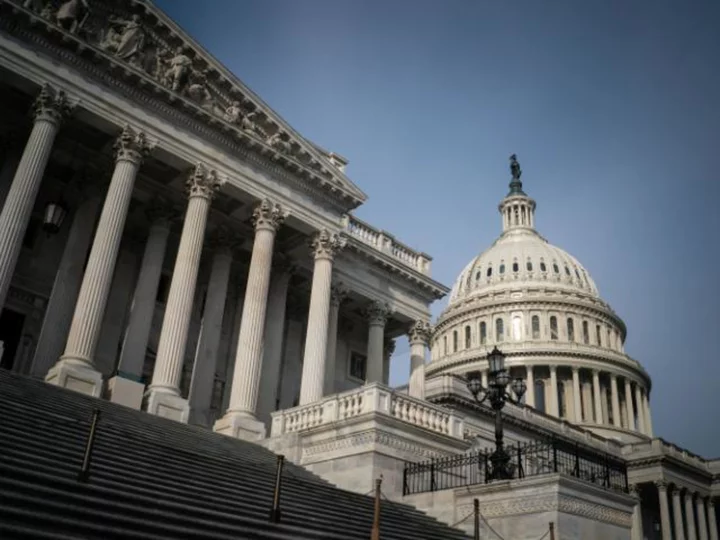
Here's what's in the debt ceiling deal
After several weeks of tense negotiations, President Joe Biden and House Republicans have reached an agreement in principle to raise the debt ceiling and cap spending.
2023-05-28 19:15
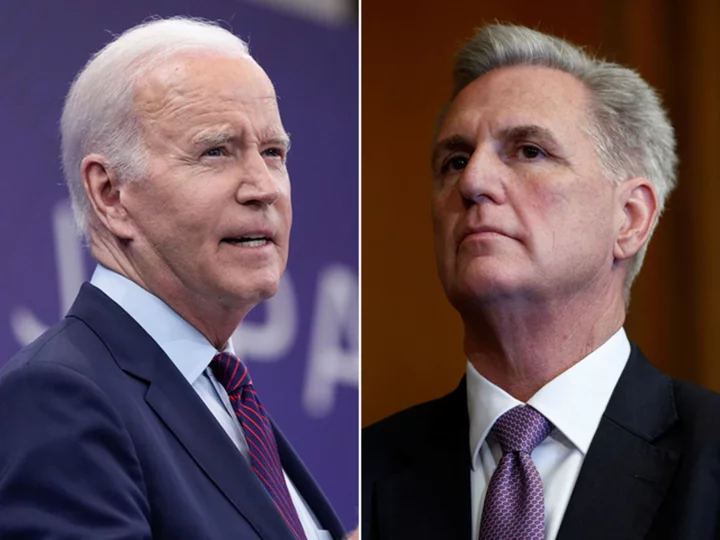
Biden and McCarthy race to sell their debt ceiling deal to lawmakers before the government runs out of money
The "agreement in principle" clinched by House Republicans and the White House late Saturday to raise the nation's borrowing limit was the culmination of mad-dash negotiations over the course of the past week that regularly stretched late into the night.
2023-05-28 12:21
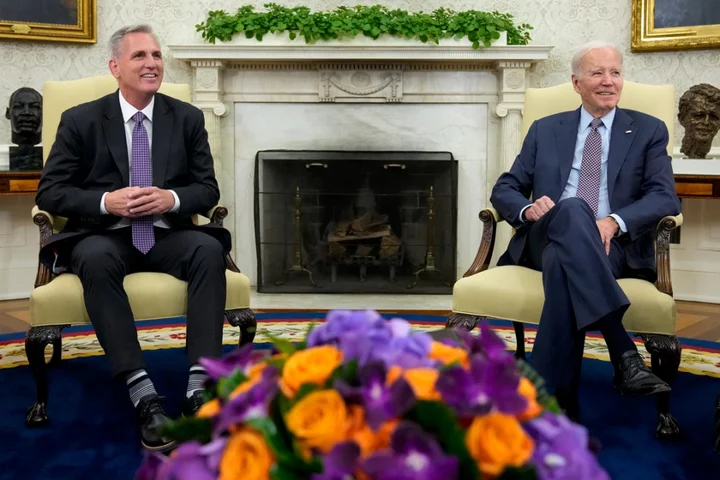
Debt ceiling deal reached between Biden and McCarthy
President Joe Biden and House Speaker Kevin McCarthy have reached a tentative agreement to avert a catastrophic and unprecedented default on America’s sovereign debt, ending a monthlong standoff that threatened the US and global economies. The White House said Mr Biden and Mr McCarthy spoke by phone for roughly 90 minutes late Saturday. The president also spoke with Democratic congressional leaders as the talks between the White House and the Republicans who control the House of Representatives entered final stages after days of back-and-forth over GOP demands to add work requirements for food assistance and other programs meant to help lower-income Americans. One source familiar with the matter described the president and the House Speaker as having come to an “agreement in principle” that would limit federal spending while raising the nation’s statutory debt limit by an amount large enough to keep the issue off the table through the November 2024 general election. More follows...
2023-05-28 09:21
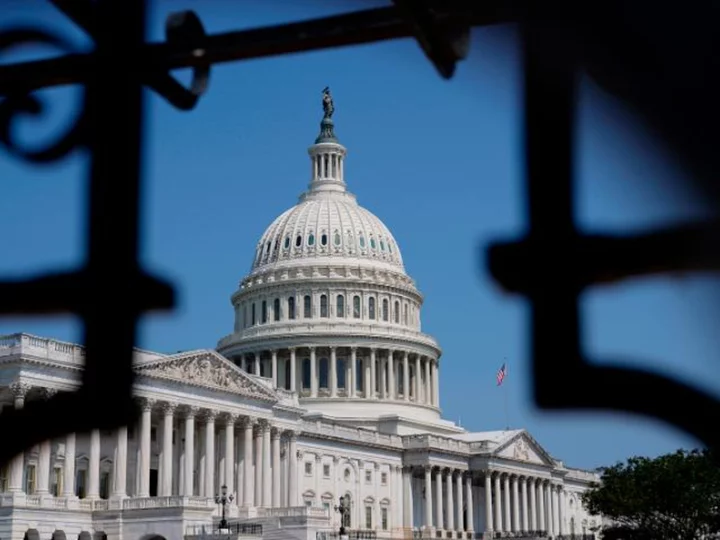
Debt limit negotiators race the clock to finalize debt deal as risk of default grows
White House and House GOP negotiators are racing to finalize a deal to raise the nation's debt limit as early as Saturday with time running perilously short and the risk of a first-ever US default growing.
2023-05-27 20:51
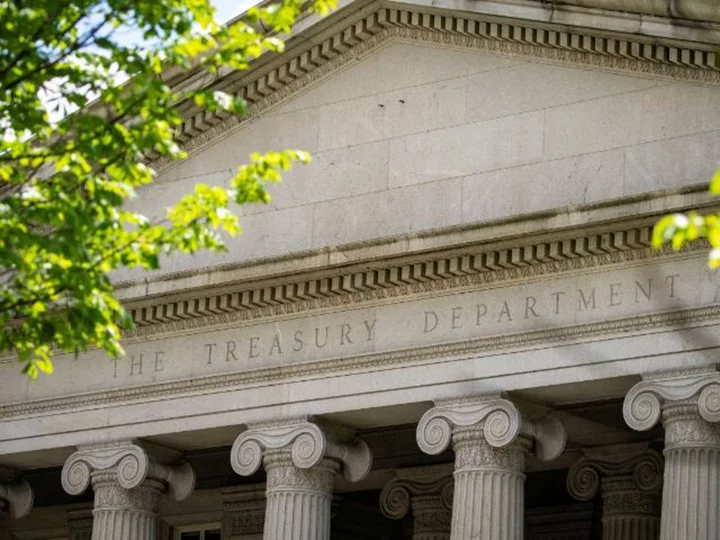
Why it's so hard to pinpoint the X-date, when the US defaults
For weeks, Treasury Secretary Janet Yellen has been consistently telling lawmakers to act soon because the X-date, when the US could default, could occur as soon as June 1. Now, with June 1 days away, everyone is hoping for a reprieve and that the X-date will slip.
2023-05-27 20:25
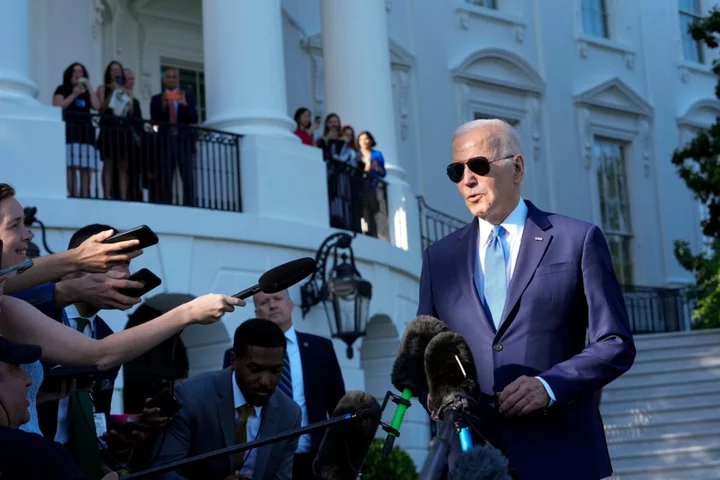
Biden says debt deal 'very close' even as two sides far apart on work requirements
Work requirements for federal food aid recipients have emerged as a final sticking point in negotiations over the looming debt crisis, even as President Joe Biden said Friday that a deal is “very close.” Biden’s optimism came as the deadline for a potentially catastrophic default was pushed back to June 5 and seemed likely to drag negotiations between the White House and Republicans over raising the debt ceiling into another frustrating week. Both sides have suggested one of the main holdups is a GOP effort to boost work requirements for recipients of food stamps and other federal aid programs, a longtime Republican goal Democrats have strenuously opposed. Even as they came closer to a framework on spending, each side seemed dug in on the work requirements. White House spokesman Andrew Bates called the GOP proposals “cruel and senseless” and said Biden and Democrats would stand against them. Louisiana Rep. Garret Graves, one of House Speaker Kevin McCarthy’s negotiators, was blunt when asked if Republicans might relent on the issue: "Hell no, not a chance,” he said. The later “ X-date,” laid out in a letter from Treasury Secretary Janet Yellen, set the risk of a devastating default four days beyond an earlier estimate. Still, Americans and the world uneasily watched the negotiating brinkmanship that could throw the U.S. economy into chaos and sap world confidence in the nation’s leadership. Yet Biden was upbeat as he left for the Memorial Day weekend at Camp David, declaring, “It’s very close, and I’m optimistic.” With Republicans at the Capitol talking with Biden’s team at the White House, the president said: “There’s a negotiation going on. I’m hopeful we’ll know by tonight whether we’re going to be able to have a deal.” But a deal had not come together when McCarthy left the Capitol Friday evening. In a blunt warning, Yellen said failure to act by the new date would “cause severe hardship to American families, harm our global leadership position and raise questions about our ability to defend our national security interests.” Anxious retirees and others were already making contingency plans for missed checks, with the next Social Security payments due next week. Biden and Republican McCarthy have seemed to be narrowing on a two-year budget-slashing deal that would also extend the debt limit into 2025 past the next presidential election. But talks over the proposed work requirements for recipients of Medicaid, food stamps and other aid programs seemed at a standstill Friday afternoon. Biden has said the Medicaid work requirements would be a nonstarter. But he initially seemed open to possible changes on food stamps, now known as the Supplemental Nutrition Assistance Program, or SNAP. The Republican proposal would save $11 billion over 10 years by raising the maximum age for existing standards that require able-bodied adults who do not live with dependents to work or attend training programs. While current law applies those standards to recipients under the age of 50, the House bill would raise the age to include adults 55 and under. The GOP proposal would also decrease the number of exemptions that states can grant to some recipients subject to those requirements. Biden's position on the SNAP work requirements appeared to have hardened by Friday, when spokesman Bates said House Republicans are threatening to trigger an unprecedented recession “unless they can take food out of the mouths of hungry Americans.” Any deal would need to be a political compromise, with support from both Democrats and Republicans to pass the divided Congress. Failure to lift the borrowing limit, now $31 trillion, to pay the nation’s incurred bills, would send shockwaves through the U.S. and global economy. But many of the hard-right Trump-aligned Republicans in Congress have long been skeptical of Treasury’s projections, and they are pressing McCarthy to hold out. As talks pushed into another late night, one of the negotiators, Rep. Patrick McHenry, R-N.C., called Biden’s comments “a hopeful sign.” But he also cautioned that there’s still “sticky points” impeding a final agreement. While the contours of the deal have been taking shape to cut spending for 2024 and impose a 1% cap on spending growth for 2025, the two sides remain stuck on various provisions. House Republicans had pushed the issue to the brink, displaying risky political bravado in leaving town for the Memorial Day holiday. Lawmakers are tentatively not expected back at work until Tuesday, but now their return is uncertain. Weeks of negotiations between Republicans and the White House have failed to produce a deal — in part because the Biden administration resisted negotiating with McCarthy over the debt limit, arguing that the country’s full faith and credit should not be used as leverage to extract other partisan priorities. “We have to spend less than we spent last year. That is the starting point,” said McCarthy. One idea is to set the topline budget numbers but then add a “snap-back” provision to enforce cuts if Congress is unable during its annual appropriations process to meet the new goals. Lawmakers are all but certain to claw back some $30 billion in unspent COVID-19 funds now that the pandemic emergency has officially been lifted. McCarthy has promised lawmakers he will abide by the rule to post any bill for 72 hours before voting. The Democratic-held Senate has vowed to move quickly to send the package to Biden’s desk. ___ Associated Press writers Mary Clare Jalonick, Stephen Groves, Farnoush Amiri, Seung Min Kim and Kevin Freking and videojournalist Rick Gentilo contributed to this report. Read More Ukraine war’s heaviest fight rages in east - follow live Charity boss speaks out over ‘traumatic’ encounter with royal aide Lauren Boebert claims Biden plan to combat antisemitism will target ‘conservatives’ Defense secretary tells Navy graduates they are ready to serve Doctor's supporters, hospital at odds with Indiana penalty for talking about 10-year-old's abortion
2023-05-27 12:29
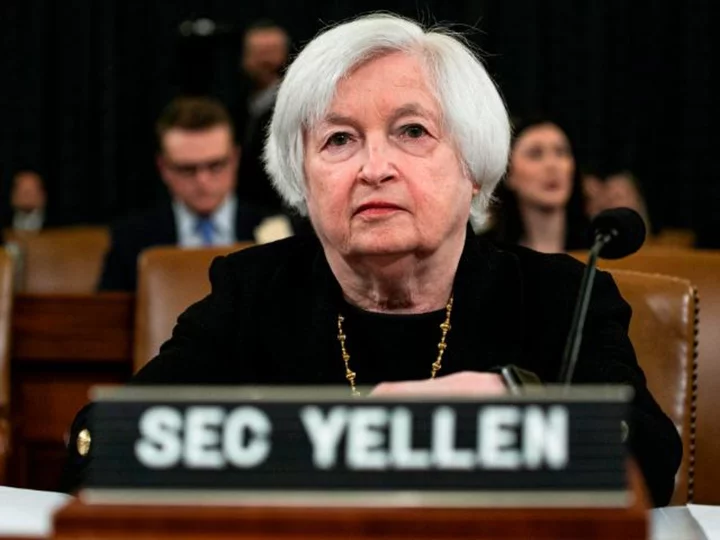
Congress must address debt ceiling by June 5, Yellen warns
Congress must address the debt ceiling by June 5 or the US Treasury will not have enough funds to pay all of the nation's obligations in full and on time, Treasury Secretary Janet Yellen said Friday.
2023-05-27 04:25
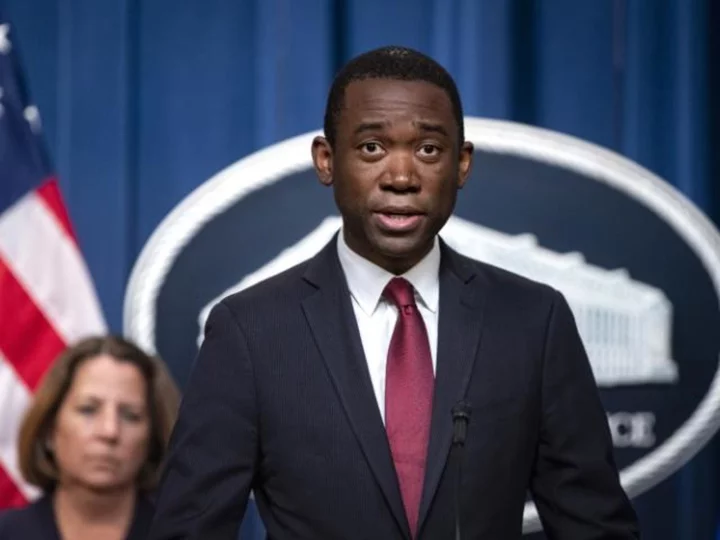
Deputy Treasury secretary rules out possibility of using 14th Amendment to raise debt ceiling
Invoking the 14th Amendment to lift the borrowing cap on the US debt ceiling as a way to work around slow-moving negotiations is not an option, Deputy Treasury Secretary Wally Adeyemo told CNN Friday, the administration's most definitive response yet to an unlikely option demanded by some progressives.
2023-05-26 21:25
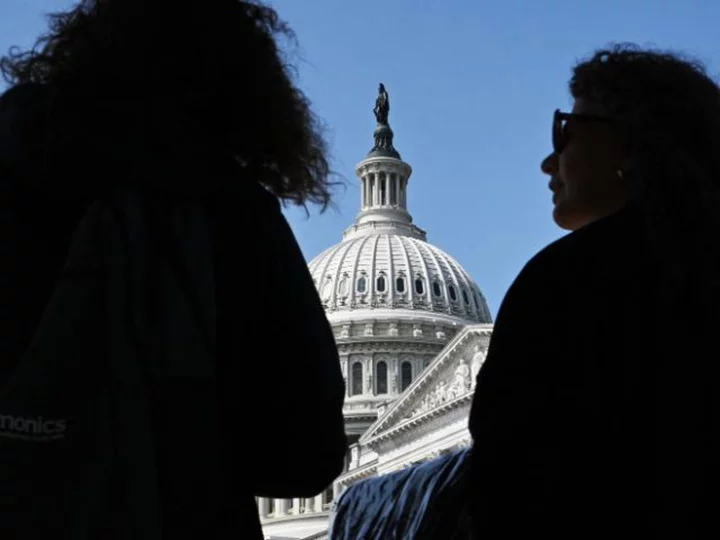
Debt limit negotiators under pressure to reach deal as risk of default grows
There are signs that negotiations over raising the nation's debt limit are gaining momentum, but major differences remain and it's unclear how quickly an agreement could come together. Time is running short as the risk of a first-ever default grows.
2023-05-26 17:15
